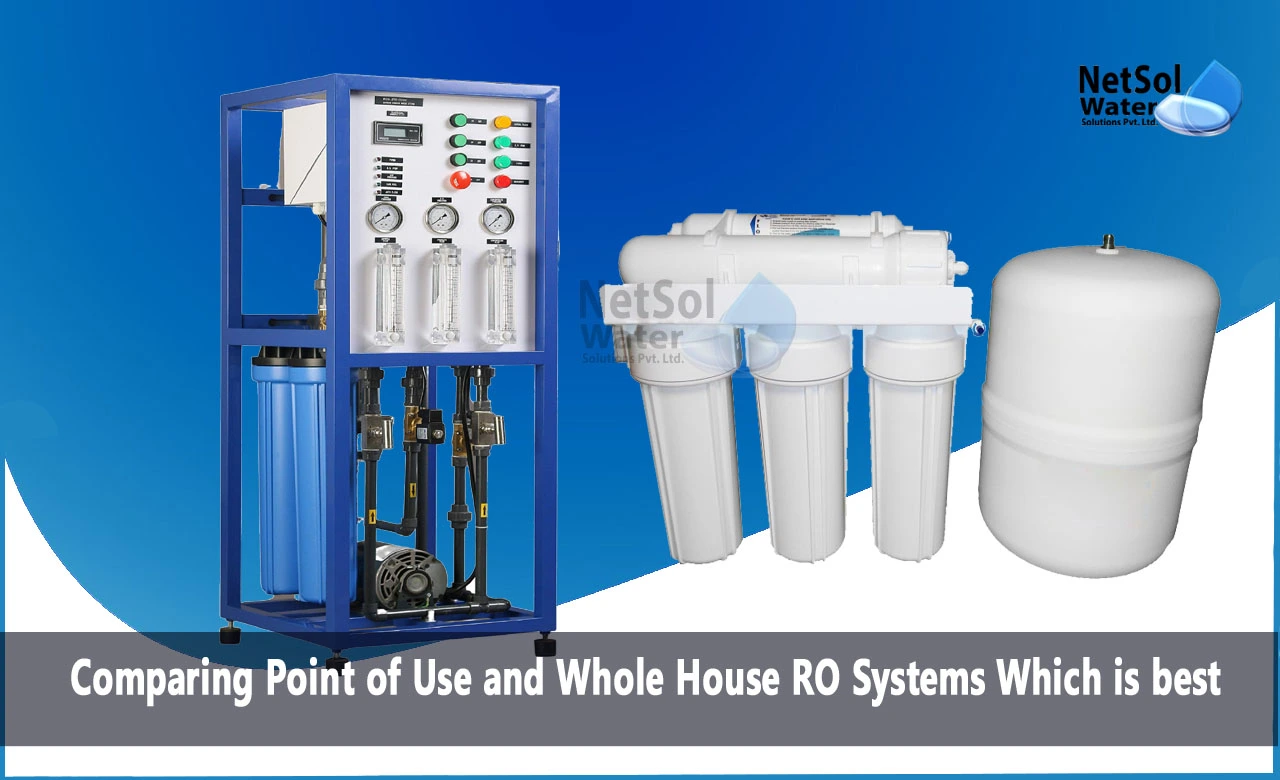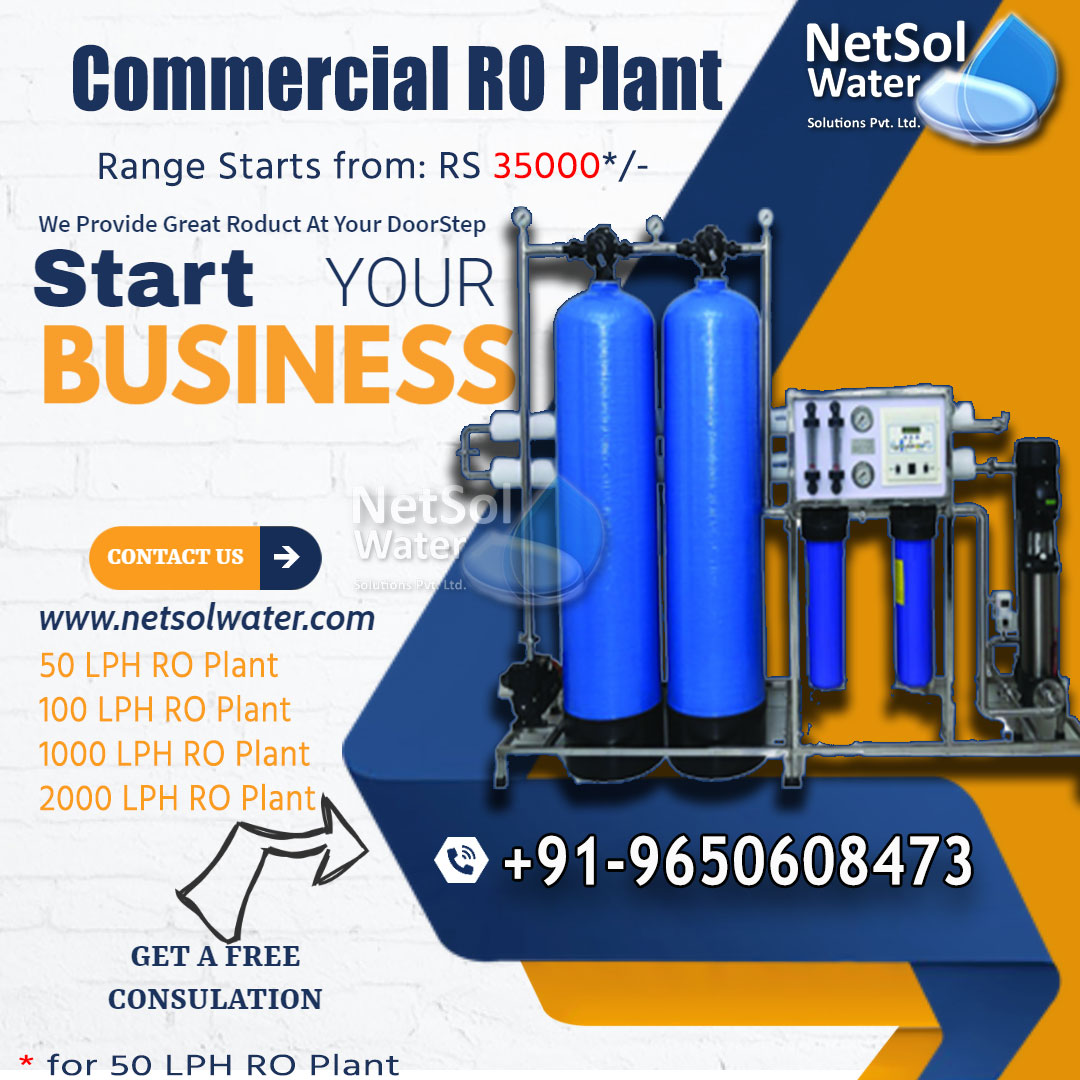How to compare Point-of-Use and Whole-House RO Systems?
For homeowners seeking cleaner, safer water, reverse osmosis (RO) filtration is an effective solution. Two main types of RO systems exist—point-of-use and whole-house. Point-of-use RO systems filter water at one location, usually a kitchen sink. Whole-house units treat all water entering your home. Deciding which is better for your needs depends on several key factors.
Let’s compare the pros and cons of point-of-use and whole-house RO systems.
· Point-of-Use RO Systems
Point-of-use or point-of-entry RO systems filter water at the point it enters your home’s plumbing. A separate drinking water faucet is installed which supplies the purified water.
Pros of Point-of-Use Units:
- Lower Cost – Single faucet units start around Rs.15000. More extensive systems are Rs.25000 to Rs. 70000. Cheaper than whole-house.
- Simple Installation – Easily installed under a sink yourself following basic instructions. Faucet mounts on counter or sink.
- Simple Maintenance – Just replace filter cartridges every 6-12 months. Annual costs around Rs. 10000 - Rs. 20000.
- Waste Water Efficiency – Only water dispensed from the RO faucet gets filtered, saving water since you aren’t treating entire home’s supply.
- Provides Purified Drinking Water – Gives you filtered water for drinking and cooking without treating water used for cleaning, laundry, etc.
Cons of Point-of-Use Systems:
- Limited Filtered Water – Purified water is only available from the RO faucet. All other faucets still use unfiltered water.
- Smaller Capacity – Typical units produce 15-30 gallons per day. Not enough for large households.
- No Whole-House Benefits – Non-drinking water remains unpurified. Any water contaminants still present at other faucets.
Ideal For:
- Small households with 1-3 people
- Removing specific contaminants like lead, arsenic, chlorine
- Providing clean drinking and cooking water when whole-house RO not needed
· Whole-House RO Systems
In contrast to point-of-use units, whole-house RO systems filter all the water entering your home. Water at every faucet and shower is purified.
Pros of Whole-House Units:
- All Water Filtered – Every drop of water in your home gets treated through the RO membrane, supplying clean water everywhere.
- Removes More Contaminants – Can tackle iron, manganese, sulfides, microbes, and other impurities point-of-use units can’t.
- Benefits for Skin, Hair, Appliances – Purified water improves health of skin and hair. Appliances like water heaters and pipes stay cleaner.
- Customizable Filtration – Multiple pre- and post-filters allow tackling specific water problems.
- Resale Value – Whole-house water treatment systems increase home resale value.
Cons of Whole-House Units:
- Expensive – Systems cost Rs. 75,000 to Rs. 10,00,000 installed. Ongoing filter costs also higher.
- Wastes More Water – All water gets filtered, even if not used for drinking. 4-6 times more waste water than point-of-use.
- Professional Installation Needed – Requires significant plumbing modifications best left to a qualified technician.
- Larger Space Required – Treatment components like tanks require substantial space connected to main supply.
Ideal For:
- Large households with high water demands
- Removing complex contaminants like heavy metals, microbes, radon
- Locations with extremely poor water quality
- Anyone who wants totally purified water from every faucet
Choosing What’s Right for You
When deciding between point-of-use or whole-house RO, consider factors like:
- Current water quality – Whole-house units make sense for very poor, contaminated water. For acceptable water just needing polishing, point-of-use is fine.
- Household size – Larger families with high water consumption favor whole-house systems. Smaller households can rely on point-of-use.
- Types of contaminants – Point-of-use tackles basic issues like chlorine, particulates, lead. Whole-house required for sulfur, bacteria, nitrates, etc.
- Budget – Whole-house RO costs much more upfront and long-term. Point-of-use is affordable for most families.
- DIY capabilities – Handy homeowners can install their own point-of-use system. Whole-house requires professional expertise.
Carefully weighing these factors against your family’s needs and budget will determine whether a point-of-use or whole-house RO system is the better choice for your home. While more expensive, whole-house RO provides complete purification. For basic water improvements at the kitchen sink, a simple point-of-use system gets the job done affordably.




